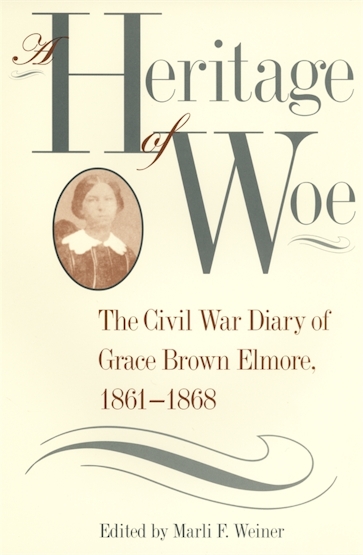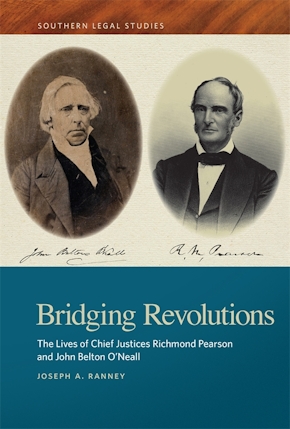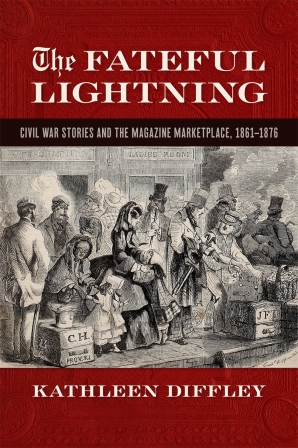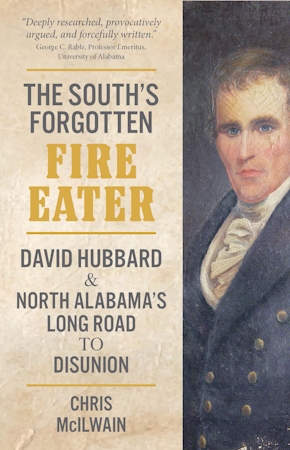A Heritage of Woe
The Civil War Diary of Grace Brown Elmore, 1861-1868
Title Details
Pages: 280
Trim size: 6.000in x 9.000in
Formats
Hardcover
Pub Date: 04/01/1997
ISBN: 9-780-8203-1854-7
List Price: $51.95
Related Subjects
A Heritage of Woe
The Civil War Diary of Grace Brown Elmore, 1861-1868
Skip to
- Description
This diary chronicles the defining years in the life of Grace Brown Elmore, one of eight children in a wealthy and influential Columbia, South Carolina, family. Begun just five months into the Civil War, when Elmore was twenty-two, it is a rich personal account of a society in the midst of chaotic change.
At her diary's opening, Elmore had every reason to believe that she would someday marry, bear children, and have a pleasurable life within a network of comparably privileged relatives and friends.
Despite her enduring devotion to the Confederacy, Elmore, who never did marry, found that the war eroded all stability and certainty from her life. Even before the South's fall, Elmore, like other elite young southern white women, had seen the old verities destroyed and had been forced to reassess all that she had taken for granted.
Elmore's descriptions of wartime life tell of the Confederate army's retreat from Columbia, the burning of the town, and the consequences of Sherman's occupation. Her details of the transition to peace and the harsh economic realities of Reconstruction relate her work as a teacher, and whether fondly recalling her mammy, Mauma Binah, or bemoaning the "impertinence" of newly freed slaves, she also provides a wealth of material on southern racial attitudes. The diary is also filled with unusually candid glimpses into the dynamics of her family.
In her younger years Elmore wrote of feeling "hemmed in . . . by other people's ideas" and often chafed at her society's notions about women's domesticity. Although she rose to every challenge before her, Elmore's diary nonetheless suggests that the autonomy and independence she had longed for early in her life came under circumstances that made them a penalty, not a prize.



